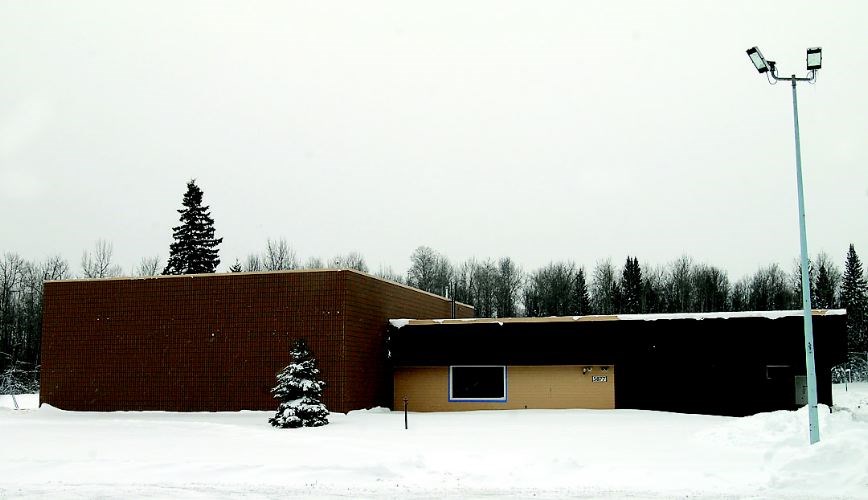Changing the city's Official Community Plan to accommodate a proposed women's recovery centre is only opening the door to further on-the-fly amendments, said plan opponents at a public meeting Thursday night.
Nearly 200 people filled the gymnasium at Vanway elementary school to hear presentations and provide comments on the application before city council to change the OCP to allow a wider range of supportive housing in residential neighbourhoods across the city.
An application to amend the city's broad land use planning document was submitted by proponents for the Northern Supportive Recovery Centre for Women, a proposed 30-bed treatment centre aimed for the former Haldi Road elementary school.
"I believe the OCP is not something that can be changed on a whim," said a former Leslie Road resident, adding the document is meant to promote growth in a neighbourhood, not to drastically change it.
Another longtime area resident said when the OCP process was initially introduced, it was meant to bring stability - stability that would be lost along with affecting comfort, security and land values if the plan is allowed to be changed so soon.
Though the meeting was advertised as one to address land use issues, many of the citizens who got up to speak couldn't separate the change from the proposed use. Tensions ran high once the floor was opened to questions and comments, a bowl area resident called out Haldi area residents for having a "NIMBY" approach and was met with boos.
"I live three houses from the Phoenix Transition House and not one single time has there been any difficulty," he said.
Laura Jagodnik, a Haldi area resident and spokesperson for the group of neighbours who oppose the policy and bylaw changes, stressed that the group does not oppose a women's recovery centre in the city but questioned "how does a high-volume community living facility fit our rural neighbourhood?"
Roy Stewart, a lawyer who represented the group in their appeal to the B.C. Supreme Court, cited the proposed recovery centre as an institution as opposed to a housing option.
"An institutional use is not compatible with surrounding uses which are consistently rural residential," said Stewart, arguing that even if the OCP was changed, the recovery centre still wouldn't be allowed. "In short, institutional users which have no residential characteristics are inconsisten with the policy statements in the OCP relating to the Rural B residential areas including Haldi Road and will remain so despite the amendments proposed to the OCP."
Cindy Poitras, whose daughter succumbed to her addiction, appealed to the plight of those who are on waiting lists for treatment centres.
"I would feel confident in laying my daughter - if she was alive - at your doorstep," she told the proponents.
The meeting demonstrated how divisive the issue of the Northern Supportive Recovery Centre is, and those in attendance didn't like the schism that they saw.
"I can't belive how this has divided our city," said Haldi area resident Jan Sevin, who brought the previously approved rezoning application to court. "From day one, we've been told it's going in, whether you like it or not."
Peter Ewart proposed those divisions could be healed by throwing out the current application and starting fresh by all parties - the proponents, the city, neighbourhoods, and proponents of other recovery centres - working together to find a common solution and forcing action from the province.
The comment period on the OCP amendment is open until Jan. 21. Written submissions can be emailed to [email protected].



